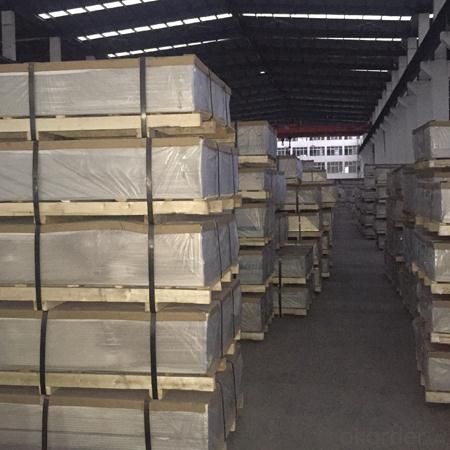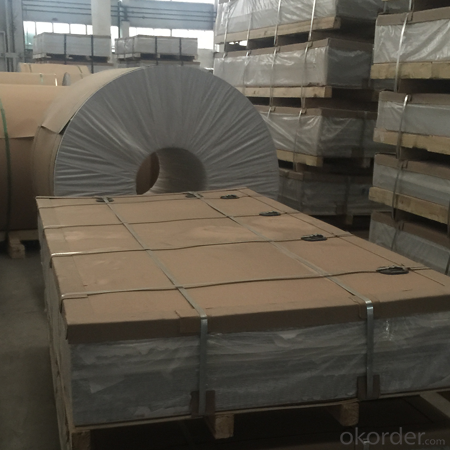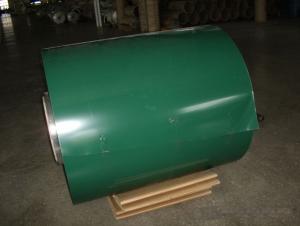Color Coated Aluminium Coil For Table Panel
- Loading Port:
- Shanghai
- Payment Terms:
- TT OR LC
- Min Order Qty:
- 3 m.t.
- Supply Capability:
- 60000 m.t./month
OKorder Service Pledge
OKorder Financial Service
You Might Also Like
Item specifice
Color Coated Aluminium Coil For Table Panel
Description
Alloy | 1060, 1100, 3003, 8011, etc. |
Temper | H16, H18, H24, H26, H28 |
Thickness | From 0.05mm to 3.0mm |
Width | Standard width:1240mm |
Special width:1300mm, 1520mm, 1570mm, 1595mm | |
Diameter | Standard dia:1200mm |
Interior dia:150mm,405mm,505mm | |
Weight | 2.5 T/coil,3.0 T/coil |
Coating | PE, PVDF, ACRYLIC |
Surface | Embossed, mill finish, coated |
Color | AS to code RAL |
Gloss | 10-90%(EN ISO-2813:1994) |
Coating Thickness | PE: more than 18 micron |
PVDF: more than 25 micron | |
Coating Hardness(pencil resistance) | More than 2h |
Coating adhesion | 5J (EN ISO-2409:1994) |
Impact Resistance | No peeling or cracking(50 kg/cm,ASTMD-2794:1993) |
Flexibility(T-bend) | 2T |
MEK resistance | More than 100 |
Advantage | 1.High temperature resistant 2.Weathering resistant 3.Scrubbing resistant 5.Acid or alkali proof 6. Fireproof 7.Light weight material is easy to construct and install |
Out package | Wooden splint with export standard |
Application | ACP, wall cladding, facades, roofs and canopies, ceilings, signboards, blind window, display platforms, electrical panels, etc |
Manufacturing
Decoiler → Accumulator →Tension Leveler →Acid & Alkali Cleaner → Rinse →Conversion Treatment → Priming coater →Infrared Curing Oven →Main coater →Floatation Curing Oven →Strippable Film Applicator → Exit Accumulator → Recoiler


PVDF and PE Coated Aluminium Coils/Sheets
PVDF color pre coated aluminum coils/ sheets:
It is well known that fluorocarbon lacquer coating (PVDF coating) owes the best acid resistant/alkali and temperature tolerant capabilities of all painting materials. Being the best quality of precoated aluminum, PVDF coated coils are especially suitable for outdoor roofing walls and ceiling manufacturing.
Polyester (PE) color pre coated aluminum coils/ sheets :
Using high-grade polyester lacquer coating material, the finished coated coils are with delicate color uniform texture, color and diverse. It is the most popular and most common used materials in decorative usage. The PE coated aluminum are widely used in ACP( aluminum composite panel ) production and indoor ceiling usage.
FAQ
--Q: Do you provide free samples?
--A: Yes, free samples will be sent to you on freight at destination.
--Q: Can I get your latest products catalogue?
--A: Yes, it will be sent to you in no time.
--Q: What is the MOQ?
--A: 2 tons
--Q: What are your payment terms?
--A: We accept L/C, T/T.
--Q: What kinds of alloy can you supply?
--A: 1000 series: 1050, 1060, 1070, 1100, 1145, 1200
3000 series: 3003, 3004, 3105, 3104
5000 series: 5052, 5083, 5754, 5182
6000 series: 6061, 6063, 6062, 6063
8000 series: 8011, 8021
--Q: What kinds of temper can you supply?
--A: O-H112: O,H12,H14,H16,H18,H22,H24,H26,H,32,H34,H111,H112
T3, T4, T6
- Q:Is it possible to customize the dimensions of aluminum coils?
- Yes, it is possible to customize the dimensions of aluminum coils. Aluminum coils can be cut and shaped according to specific requirements and dimensions based on the application they are intended for. Customization allows for flexibility in design and ensures the aluminum coils meet the specific needs of the project.
- Q:Can aluminum coils be used in solar panel systems?
- Solar panel systems can indeed utilize aluminum coils. Aluminum is commonly selected as the material for frames and supports in solar panels because of its favorable combination of lightness and strength. Its resistance to corrosion, durability, and impressive thermal conductivity make it an ideal choice for enduring severe weather conditions and efficiently dispersing heat generated by the panels. Furthermore, aluminum is highly recyclable, which aligns perfectly with the environmentally conscious nature of solar energy systems. In conclusion, incorporating aluminum coils into solar panel systems enhances their efficiency, lifespan, and eco-friendliness.
- Q:Why do we need aluminum when cooking in the oven at all.
- Aluminum foil is an incredibly versatile cooking product as it can take the heat of almost any kind of cooking (stove, oven, grill, firepit), it can be formed into any shape needed. It also retains the juices in the roast while baking, so as to cook completely without burning. Keeps the direct heat off your roast. Catches spillovers from pies, casseroles, stews etc.
- Q:I am planning on calling an electrician before we move in. I was just wondering about some ballpark estimates to rewire a home with aluminum wiring (appx. 1900 sq feet).
- lol alot.
- Q:Can aluminum coils be used in the manufacturing of cans?
- Yes, aluminum coils can be used in the manufacturing of cans. Aluminum coils are often used to produce the thin sheets of aluminum that are then formed into cans. The coils are typically processed through a series of steps, including rolling, annealing, and slitting, to create the desired thickness and width for can production. The aluminum sheets are then cut into appropriate sizes and shaped into the familiar cylindrical can shape. Aluminum is a popular choice for can manufacturing due to its lightweight, durable, and corrosion-resistant properties. It also provides a barrier to light, oxygen, and moisture, helping to preserve the quality and shelf life of the contents inside the cans. Overall, aluminum coils are an essential component in the manufacturing process of cans and play a significant role in the packaging industry.
- Q:What are the different coil packaging materials used for aluminum coils?
- Aluminum coils commonly utilize various coil packaging materials to ensure their protection during transportation and storage, guaranteeing their safe arrival at the desired location. Plastic stands out as one of the most favored coil packaging materials for aluminum coils. Plastic packaging can take the form of shrink wrap, stretch film, or plastic bands. Shrink wrap is frequently employed to envelop the coils tightly, providing them with a secure and protective covering. On the other hand, stretch film is used to securely wrap the coils together, preventing any shifting and potential damage. Plastic bands, meanwhile, are used as an additional layer of stability to secure the coils. Paper is another widely used packaging material for aluminum coils. Kraft paper or corrugated cardboard is often utilized to wrap and protect the coils. This type of packaging offers cushioning to prevent the coils from scratching or rubbing against each other during transit. Moreover, paper packaging is easily recyclable, making it an environmentally friendly choice. In addition to plastic and paper, steel strapping is occasionally employed for packaging aluminum coils. Steel strapping possesses excellent strength and durability, ensuring the coils remain securely bundled during transportation. This type of packaging material is particularly valuable for heavy-duty applications that require extra protection. Ultimately, the selection of coil packaging material for aluminum coils depends on factors such as coil size and weight, transportation requirements, and the desired level of protection. By utilizing the appropriate packaging materials, aluminum coils can be effectively shielded from damage and reach their destination in optimal condition.
- Q:How are aluminum coils used in the manufacturing of cookware?
- Aluminum coils are widely used in the manufacturing of cookware due to their excellent heat conductivity and lightweight nature. Cookware manufacturers typically use aluminum coils as the primary material for constructing the bases and bodies of pots, pans, and other cooking utensils. Firstly, aluminum coils are rolled out and then cut into different shapes and sizes depending on the desired cookware product. These coils are preferred over other materials, such as stainless steel or cast iron, because aluminum conducts heat more efficiently. This allows for even distribution of heat across the surface of the cookware, ensuring that food cooks evenly and thoroughly. Additionally, aluminum coils are lightweight, making the resulting cookware easier to handle and maneuver. This is particularly beneficial for professional chefs and home cooks who often need to lift and move pots and pans during the cooking process. Moreover, aluminum is a malleable material, meaning it can be easily shaped and formed into various cookware designs and styles. Whether it's a saucepan, frying pan, or baking tray, aluminum coils can be molded to create the desired shape and size, allowing for versatility in cookware manufacturing. Furthermore, aluminum has a natural resistance to corrosion, making it a durable choice for cookware. It does not react with acidic or alkaline ingredients commonly used in cooking, ensuring that the cookware remains safe for food preparation and cooking. Lastly, aluminum coils can be treated with non-stick coatings, such as Teflon, to create non-stick cookware. These coatings provide an additional layer of convenience, allowing for easy food release and hassle-free cleaning. In summary, aluminum coils play a crucial role in the manufacturing of cookware by providing excellent heat conductivity, lightweight construction, versatility in design, durability, and the option for non-stick coatings. These qualities make aluminum coils an ideal choice for producing high-quality cookware that delivers superior cooking performance and convenience in the kitchen.
- Q:What is the minimum thickness available for aluminum coils?
- The minimum thickness available for aluminum coils can vary depending on the specific requirements of the application. However, in general, aluminum coils can be manufactured with a minimum thickness of around 0.006 inches or 0.15 millimeters. It is important to note that certain industries or uses may have different minimum thickness requirements, so it is always advisable to consult with a manufacturer or supplier to determine the appropriate thickness for a specific application.
- Q:What are the standard tolerance levels for aluminum coils?
- The standard tolerance levels for aluminum coils can vary depending on the specific industry and application. However, in general, the tolerance levels for aluminum coils are determined by industry standards and specifications such as ASTM (American Society for Testing and Materials) or ISO (International Organization for Standardization). For thickness, the standard tolerance levels for aluminum coils can range from +/- 0.002 inches to +/- 0.020 inches, depending on the specific grade and thickness of the aluminum. Similarly, for width, the tolerance levels can vary from +/- 0.010 inches to +/- 0.250 inches. In terms of flatness, the standard tolerance levels for aluminum coils are typically specified as a maximum deviation from a flat plane. This can range from as low as 0.001 inches to as high as 0.020 inches, depending on the specific requirements of the application. Other factors that may influence tolerance levels include the surface finish, edge condition, and mechanical properties of the aluminum coils. It is important to consult the relevant industry standards and specifications, as well as the specific requirements of the application, to determine the appropriate tolerance levels for aluminum coils.
- Q:What are the common surface preparation methods for aluminum coils?
- Common surface preparation methods for aluminum coils include cleaning, degreasing, and etching. Cleaning is typically the first step in the surface preparation process for aluminum coils. This involves removing any dirt, dust, or other contaminants from the surface. Cleaning can be done using a variety of methods, such as using solvents, alkaline cleaners, or mechanical cleaning techniques like brushing or scrubbing. Degreasing is another important step in preparing aluminum coils. This helps to remove any oils or greases that may be present on the surface. Degreasing can be done using solvents or alkaline cleaners specifically designed for this purpose. It is essential to thoroughly remove any grease or oils, as they can interfere with subsequent treatments and coatings. Etching is often performed on aluminum coils to create a roughened surface, which improves adhesion for subsequent coatings or treatments. Etching can be done using chemical etchants or through mechanical methods such as sandblasting. The choice of etching method depends on the specific requirements of the application and the desired surface finish. After surface preparation, additional treatments may be applied to aluminum coils, such as conversion coatings or anodizing, to enhance corrosion resistance or improve surface properties. These treatments help to protect the aluminum surface and provide a base for further finishes or coatings. Overall, proper surface preparation is crucial for achieving good adhesion, corrosion resistance, and overall performance of aluminum coils in various applications. It ensures that the surface is clean, free from contaminants, and properly prepared for subsequent treatments or coatings.
1. Manufacturer Overview |
|
|---|---|
| Location | |
| Year Established | |
| Annual Output Value | |
| Main Markets | |
| Company Certifications | |
2. Manufacturer Certificates |
|
|---|---|
| a) Certification Name | |
| Range | |
| Reference | |
| Validity Period | |
3. Manufacturer Capability |
|
|---|---|
| a)Trade Capacity | |
| Nearest Port | |
| Export Percentage | |
| No.of Employees in Trade Department | |
| Language Spoken: | |
| b)Factory Information | |
| Factory Size: | |
| No. of Production Lines | |
| Contract Manufacturing | |
| Product Price Range | |
Send your message to us
Color Coated Aluminium Coil For Table Panel
- Loading Port:
- Shanghai
- Payment Terms:
- TT OR LC
- Min Order Qty:
- 3 m.t.
- Supply Capability:
- 60000 m.t./month
OKorder Service Pledge
OKorder Financial Service
Similar products
New products
Hot products
Related keywords





























